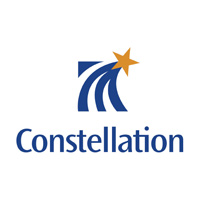
While ABI bought the stake in Grupo Modelo that it didn’t already own for $20.1 billion, Constellation bought the 50 percent of Modelo brands sold in the U.S. by Crown Imports, a leading importer of Corona, that it didn’t already own for $2.9 billion. This also gave Constellation the rights to Modelo’s brewery in Piedras Negras, Mexico.
This coup shifted the landscape for Constellation and its subsidiary and venture partner, Crown, enabling the companies to explore and possibly invest in the still-growing craft beer industry.
“It opens the horizon,” Crown president Bill Hackett said of the agreement. “We are completely unshackled.”
Right on cue, less than one week after the settlement, Jeff Menashe, CEO of the Demeter Group, a San Francisco-based investment bank, assembled a presentation for Constellation titled Why Craft Beer is Next. The presentation explained how the Modelo deal could transform Constellation’s future and lead the company and its investors toward craft beer.
Menashe believes that investors have reached a greater level of comfort with the craft beer industry because it’s further proven itself in the marketplace by displaying consistent years of growth.
“Craft has become big enough and it’s not looking as though there’s any reason for it to sort of fall from that position,” Menashe said.
The presentation noted that over the past year, Constellation’s 123 wine brands and seven spirits brands pulled in $2.8 billion in revenue, while Crown’s four beer brands, highlighted by Corona, pulled in $2.6 billion. This imbalance explains the power of beer’s revenue and the potential need for more beer brands. The presentation also noted that unlike the craft beer industry, the current depth of the wine market leaves little space for growth. Menashe doesn’t see any extra space for premium glass, super premium and ultra premium wine brands.
Yet despite their divergent growth rates, Menashe mentioned several similarities between the two segments; both come at a premium price, appeal to millennials, focus on style and depend on a back story. This story can talk about the ingredients, the geographical association or the brand personality, but no matter the details, it steadily aims to give the brand a human dimension.
As wine’s growth subsides and craft beer’s growth continues to increase, the similarities between these segments could smooth Constellation’s transition to craft beer, according to Menashe.
“I think that the craft and those wine brands I’m referring to are tracking or are trying to speak to the same consumer,” he said.
Hackett said that he’s constantly talking with craft brands, and while he hasn’t yet struck a deal, he envisions significant moves in the near future. He also said that Crown’s 15 warehouses across the country and advanced distribution system will allow whatever brand it picks up to reach the right markets at a quick rate.
“I think we’re just on the cusp of expanding our business,” Hackett said.